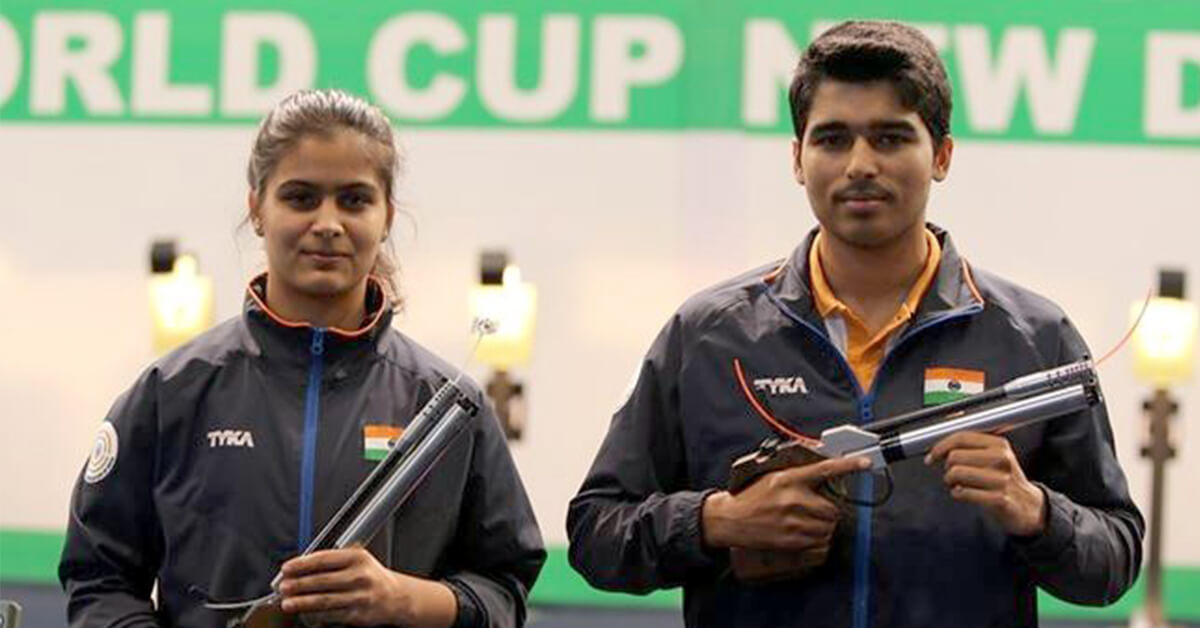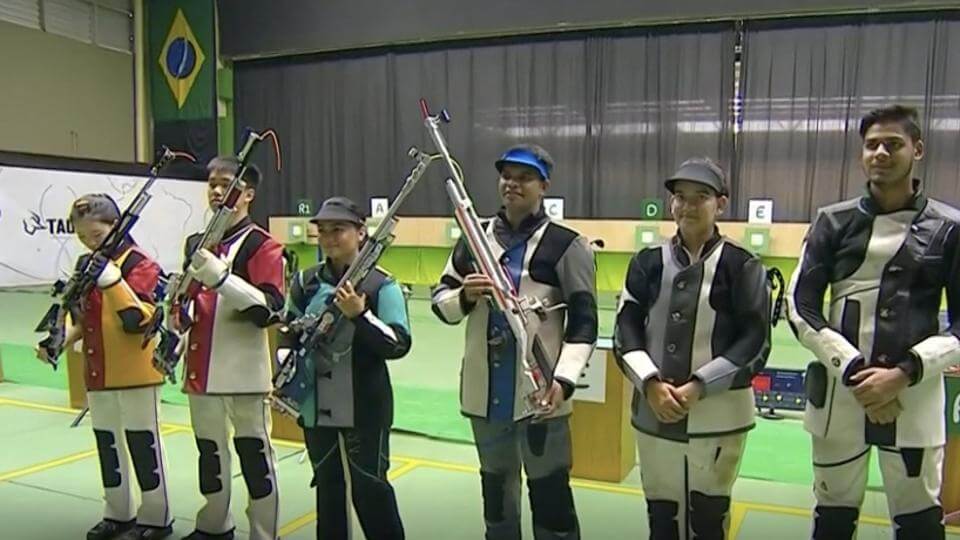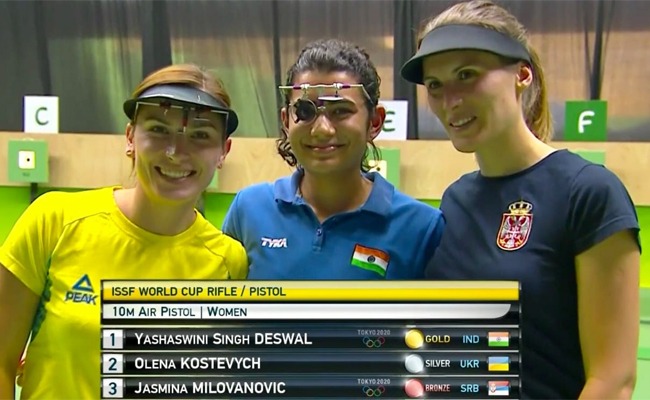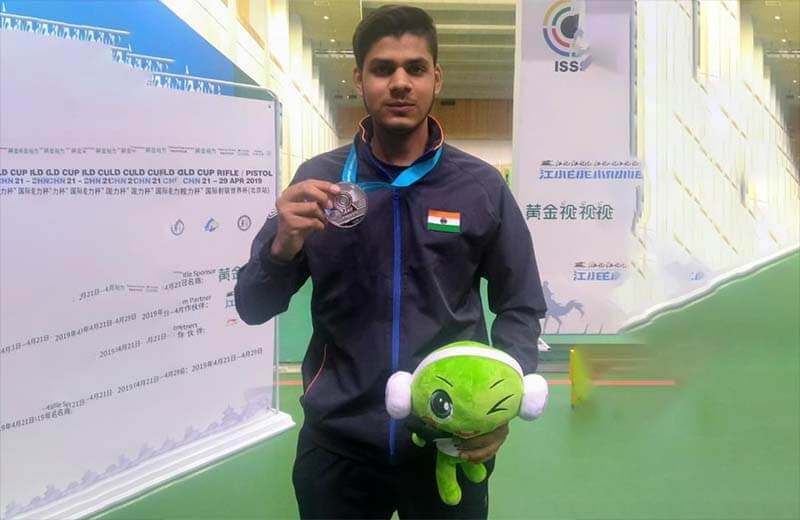Featured
India’s mixed teams in shooting are providing rich returns in 2019
The ISSF World Cup in Rio proved to be a perfect outing for the Indians, with a staggering 16 gold medals.

The last Rifle/Pistol Shooting World Cup of 2019 ended in Rio recently and once again it was a Golden World Cup for India. India won a whopping five Golds to go with two Silvers and three Bronzes, thus topping the medals tally both in terms of the number of Golds and the number of total medals.
This caps off a mind-blowingly stellar season for India at world events offering Olympic quotas, i.e., the 2018 World Championship and the four World Cups in 2019. Generally, these competitions, in addition to the Olympics itself, are much more competitive than any other competitions in the entire sport. For comparison, in the 2014-15 World Championships / World Cup cycle, India won “only” one Silver and three Bronzes in the Olympic events of the five competitions, with no Golds. But in the corresponding 2018-19 cycle, India has won five Silvers, two Bronzes and a staggering 16 Golds!! That’s right, SIXTEEN GOLDS!!!!
In particular, the mixed team events have provided India with tremendously rich returns in 2019. The Pistol team of Manu Bhaker and Saurabh Chaudhary completed a clean sweep of Golds at all the four world cups, essentially achieving the Shooting equivalent of winning all the four Tennis Grand Slams in a single year. In addition, for the first time, our 2nd team comprising Yashaswini Deswal and Abhishek Verma added a Silver at the Rio World Cup making it a perfect outing for the Indians.

In the Rifle Mixed Team event, the team of Apurvi Chandela and Deepak Kumar won their first World Cup Gold in Rio, upgrading from their Silver in Munich. On the other hand, Munich and Beijing World Cup Champions Anjum Moudgil and Divyansh Panwar added a 3rd World Cup medal to their resume, winning the Bronze.
However, with the mixed team finals now adopting what is essentially a set score system (similar to Recurve Archery), how do the actual scores shot in the medal matches stack up? Read on to find out…
Pistol Mixed Team
The below table analyses the scores shot in the medal matches of the last two World Cups of the year – Munich and Rio (the Delhi World Cup had a widely different format whereas detailed individual scores for the Beijing World Cup are not available).

The above table shows that despite India’s golden boy Saurabh Chaudhary (read about his incredible numbers here) having a slightly off-colour gold medal match in Rio by his own lofty standards, he still had the best average shot score among all the 8 shooters participating in the Rio medal matches. Saurabh started slow, but ended with a magnificent run of 10.7-10.4-10.4-10.8-10.7 to form the backbone of his team’s brilliant comeback after trailing 9-15. Further, Beijing and Rio Individual Gold Medallist Abhishek Verma seems to be taking his skill to new heights every day, matching Saurabh all the way until the final shot.
On the women’s side, Manu Bhaker had a solid showing, but did still trail the Bronze match’s women shooters – Ranxin Jiang and Veronika Major – in terms of the average shot score. This was the result of a relatively weak run in the last 4 shots, comprising 9.0-9.5-10.1-10.2, which is when Saurabh took over the match. Up till those last 4 shots, Manu had an average shot score of 10.108.
In Munich however, Manu had shown what she is truly capable of, shooting an average of 10.138, blowing all the other women shooters in Munich medal matches out of the water. On the other hand, despite shooting an absolutely magnificent average of 10.215 in Munich, Saurabh had actually ended up with a total score 0.1 behind the male Silver medallist, Oleh Omelchuk.
Moving to the new sensation Yashaswini Deswal, she had a good first 2/3rd of the Gold Medal match in Rio, shooting an average of 10.033 (an average which would have been much higher but for an errant 8.9) but with just one set point left to secure the Gold, she buckled under the pressure and shot a disastrous run of 8.1-9.6-10.1-8.3.

Unfortunately, this has been a bit of a pattern for Yashaswini, as she missed out on the individual finals in both Beijing and Munich after shooting absolutely disastrous final series. However, it was Yashaswini’s first-ever mixed team event at a World Cup. She has already shown that she learns from her mistakes, winning the individual Gold and an Olympic Quota in Rio, and thus should surely gain a lot from her mixed team experience as well.
The full scores of the Rio Gold medal match can be found here and here.
Rifle Mixed Team
The below table shows the scores shot in the medal matches of the last two World Cups of the year.

The first thing that jumps out of the above table is the stupendous performance of Divyansh Panwar. His two-shot averages are the highest two averages in the entire table, including a scarcely believable 10.485 in Rio. For context, in his legendary final in the Beijing 2008 Olympics, Abhinav Bindra shot an average of 10.450, slightly lower than Divyansh in Rio!!
Further, throughout the Rio and Munich medal matches, Divyansh’s worst shot was a 10.1. Of all the shooters in the above table, the only other shooter who went through an entire medal match without a single sub-10 shot was 4th placed Austrian Alexander Schmirl in Munich. But, while Divyansh shot a single 10.1 in Rio and a single 10.1 in Munich, Schmirl actually shot three 10.0s and four 10.1s in his 15 shots, clearly showing the difference in performance level.
And Divyansh needed his stupendous Rio performance as well. Since, though Anjum Moudgil had a solid outing, she couldn’t match the Hungarian Eszter Meszaros who had a great final in her own right. Anjum’s own shining moment was in Munich, where she was pretty close to Divyansh herself and the difference between Apurvi Chandela and her was what got her team the Gold. This was because even though Divyansh had the highest score, Deepak Kumar actually matched him, scoring only 0.1 lower in total, but Apurvi had an off day.

Still, the Munich Gold Medal match ended with a completely lopsided scoreboard of 16-2, which did not do justice to Apurvi and Deepak. Out of the 8 sets won by Anjum and Divyansh, they won 3 by just 0.1 points and another 2 by 0.2 points. So while Anjum and Divyansh were unquestionably the better team, 16-2 was a bit harsh on Apurvi and Deepak. At Rio though, Apurvi and Deepak got their own Gold. This was the match where Apurvi Chandela showed her true class and led her team to Gold by shooting the best score among all the shooters in the Gold Medal match.
Further, the table above shows that Deepak’s average in Rio was a solid but unspectacular 10.236. However, this was only because of a single wild 8.7. Remove that 8.7, and Deepak’s average rises to a brilliant 10.390. And the set score format of the mixed team finals means that a single errant shot does not hurt anywhere near as much as it would hurt in an individual final. So, even though Deepak Kumar is the only one of the 8 Indian shooters analysed in this article without an Olympic quota, he has still been stellar in the mixed team event.
Finally, an anomaly that jumps out from the above table is that in the Munich Bronze medal match, the Austrian pair actually shot much better overall scores than the Belarussians but Belarus still ended with Bronze. This was because Maria Martynova had an absolute horror start to the match shooting 8.9-9.8-9.2 to put her team down 0-6. She started recovering from there but her team’s deficit still ballooned to a massive 0-10, before the Belarussians came into their own and took over the match to win 16-14. Thus, just like a Tennis match which doesn’t always go to the player winning the most games or the most points, shooting mixed team matches can also be won by shooting lower scores than your opponents, but it is still rare.
Tokyo Opportunity
In conclusion, not only have the Indian shooters dominated the medals charts in the Mixed Team events, all of them have shot great scores in the medal matches (with the unfortunate exception of Yashaswini Deswal’s last 4 shots in her first World Cup Mixed Team event) and all of them individually have had their moments, with Divyansh Panwar and Saurabh Chaudhary deserving special mention.
Both these events should provide two of our strongest medal opportunities at Tokyo 2020, across all sports, with India likely to get not just one shot but two great shots at both events through the two teams likely to participate in each event.
However, a significant issue which still needs to be sorted out is that while our 10m Pistol team for Tokyo is now complete, India is still missing the 2nd Olympic Quota in Men’s 10m Air Rifle (read here how Olympic quotas work). In Rio, our shooters Deepak Kumar, Yash Vardhan and Ankush Jadhav ended 3rd, 4th and 5th respectively in the Quota race, with only 2 Quotas on offer. Thus, ranking wise, India literally came as close as possible to secure that Quota, without being able to achieve it.
Without that 2nd Men’s 10m Rifle Quota, India can still field the full 2 mixed teams in Tokyo by asking Sanjeev Rajput (who won a Quota in the 50m Rifle 3 position event and is likely to travel to Tokyo for that event) to shoot in the 10m events as well. Unfortunately, however, Sanjeev’s scores in domestic 10m trials do not inspire much confidence. Going into the Rio World Cup, he was placed a lowly 30th on NRAI’s selection rankings used to select Indian World Cup teams.
Of course, shooting is a highly unpredictable sport and anything can happen, but there seems no doubt that our medal chances will take a significant hit in the absence of that missing Quota. And any attempts at a Quota exchange will likely to lead to major controversy, besides adversely affecting the medal chances in another event.
So, India’s final chance to secure that critical missing Quota will be the Doha Asian Championship in November. With 3 Quotas on offer in Doha, only the Asian countries being present as opposed to the entire world, and China out of the Quota race having already secured their maximum 2 Quotas, India will start strong favourites to complete their 10m team.
